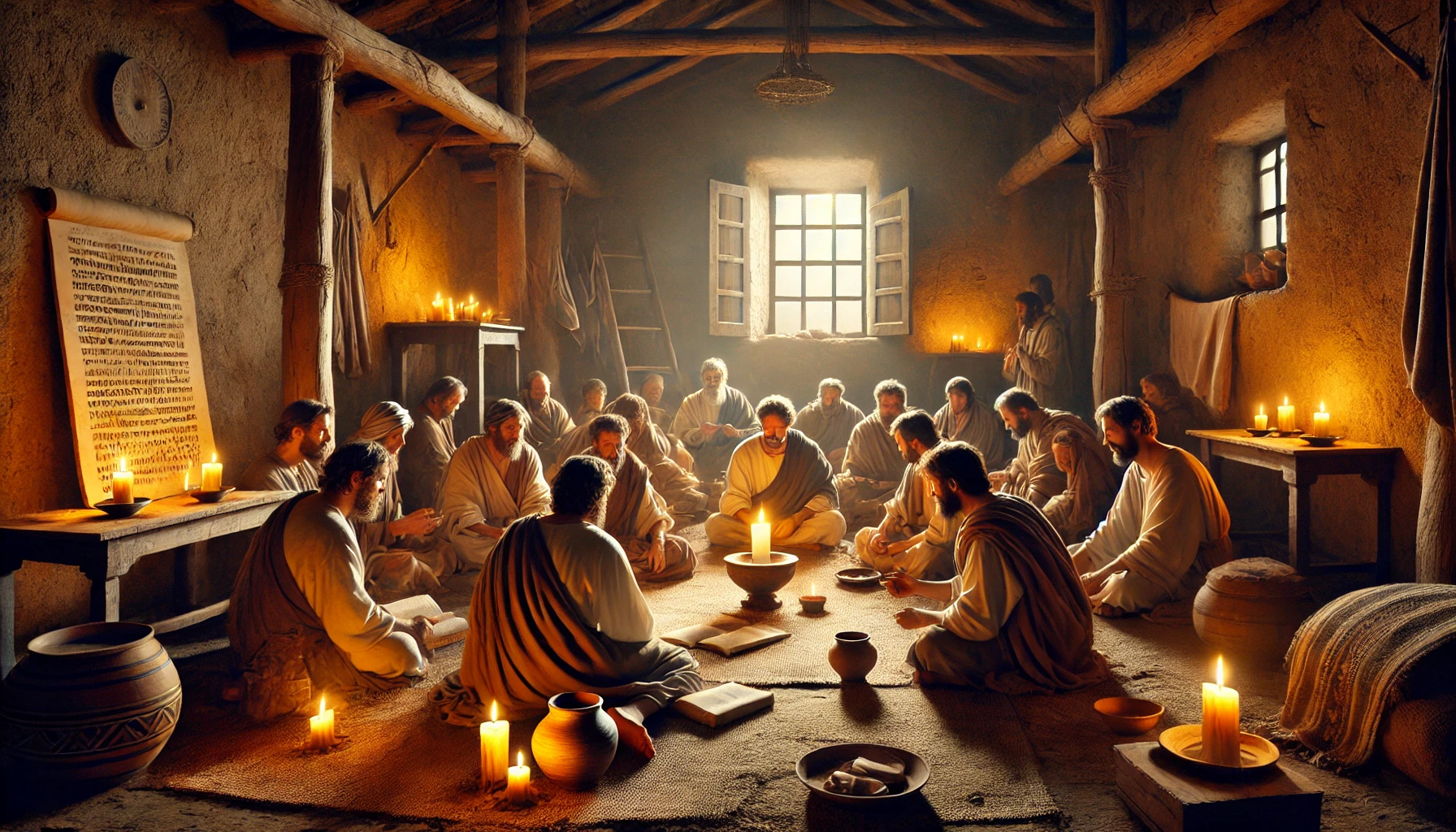The early Christian Church was not an institution of wealth or grandeur. It was a gathering of faithful men and women who met in humble settings, prepared for persecution, and awaited the return of Jesus Christ. Unlike today’s church organizations that often emphasize material wealth and elaborate structures, the early Christians embodied a simple, disciplined, and mission-focused way of life that we, in these last days, can learn from and apply.
Where and How the Early Christians Met
Early Christians did not have grand cathedrals or designated places of worship. Instead, they met in homes, catacombs, and secret locations to avoid persecution. The Book of Acts and Paul’s letters provide evidence that believers gathered in private residences (e.g., Romans 16:5, 1 Corinthians 16:19). These meetings were intimate, fostering strong relationships and accountability among believers.
- House Churches: Early Christians met in the homes of fellow believers, sharing meals, prayers, and Scripture. This practice ensured they remained a tight-knit community, unlike the large, impersonal gatherings seen in many modern churches.
- Secrecy and Persecution: Due to Roman oppression, believers often had to worship in secret, using symbols like the fish (Ichthys) to identify each other. Meetings were marked by deep spiritual fellowship rather than elaborate rituals.
- Communal Living: Acts 2:44-45 describes how they sold possessions and distributed to those in need, ensuring no one among them suffered lack. This was not socialism but a Spirit-led generosity aimed at survival and unity.
The Leaders of the Early Church Were Not Wealthy
Contrary to modern prosperity teachings, the apostles and early church leaders were not rich. Jesus Himself warned against wealth as a distraction from the Kingdom (Matthew 6:19-21). Paul, Peter, and John were not aristocrats; they were fishermen, tentmakers, and humble servants.
- Paul’s Example: Paul worked as a tentmaker to support himself (Acts 18:3), demonstrating that ministry was never about financial gain.
- Peter and John: When Peter healed the lame man in Acts 3:6, he declared, “Silver and gold have I none.” The power of God, not material wealth, was their treasure.
- Warnings Against Greed: The early Church was warned about false teachers who sought financial gain (1 Timothy 6:5-10). Today, many so-called church leaders would do well to heed these warnings.
Some Early Christians Knew Christ’s Return Was Far Off
Although the early Church lived in expectation of Christ’s return, some had insight that it would not be immediate. Peter wrote that “one day is with the Lord as a thousand years” (2 Peter 3:8), hinting at a long wait. However, this did not lead to complacency but to diligent preparation.
- Living in Readiness: They remained watchful, believing Christ could return at any moment while also ensuring the next generation was equipped to carry the faith forward.
- Writing and Preserving Scripture: The early believers meticulously recorded and preserved the teachings of Christ and the apostles so that future generations, including ours, would have the truth.
- Martyrdom and Perseverance: Many faced death for their faith, yet they endured, knowing their reward was in heaven (Revelation 2:10).
Applying Their Strategies Today
As we approach the final literal days before Christ’s return, we must take inspiration from the early Church. Here’s how:
- Return to House Gatherings: The future will likely bring increased persecution against true believers. We must be prepared to meet in homes and secret places once again.
- Reject Materialism: The early Church did not seek wealth but trusted in God’s provision. We must also detach from material dependence and focus on spiritual preparedness.
- Live as a Community: We should support one another, sharing resources and helping those in need, just as the early believers did.
- Teach and Preserve Sound Doctrine: False teachings abound today. Like the early Church, we must guard the truth and pass it down faithfully.
- Be Ready for Persecution: The world is becoming increasingly hostile to true Christianity. We must be willing to suffer for our faith, knowing that our reward is eternal.
Be Ready
My fellow elect, we are very close to the end of the 6th day. We know what that means for us. Let's draw closer to one another and help one another get prepared for the Great Tribulation which is about to come. Remember that this tribulation is for us as well, those who adopt this worlds policies and religion may have it easier than us. Christ will call us towards the end of the Great Tribulation. Before that we have 3 to 7 years to endure before He takes us into the clouds to be with Him. Shortly after we will return with Him to end all evil.
Conclusion
The early Church was a model of endurance, faith, and preparation for Christ’s return. They understood that the world was not their home and that their mission was to remain faithful until the end. As we navigate the last days, we must follow their example—meeting in simple gatherings, rejecting wealth as a priority, living in expectation, and enduring trials for the sake of the Kingdom. The same Spirit that sustained them is with us today. Let us be faithful until He comes.
